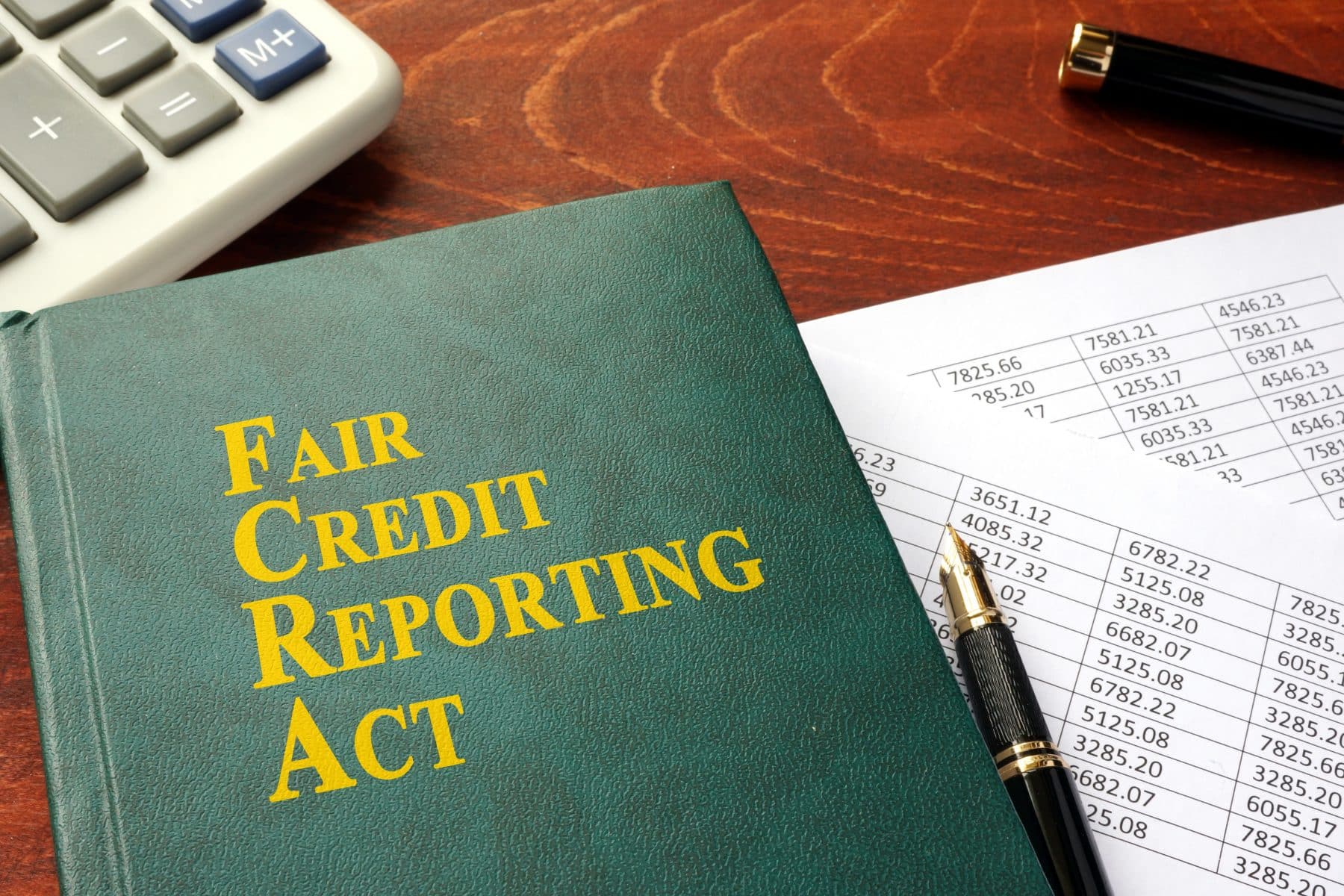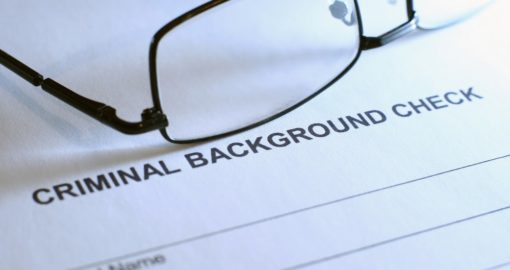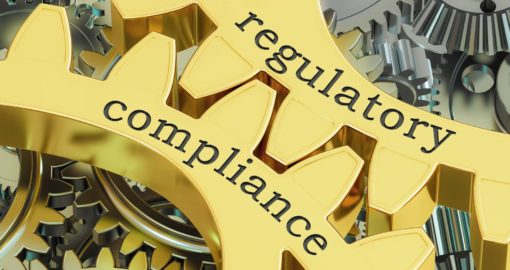Call Us Today (877) 943-0100
What is the Fair Credit Reporting Act (FCRA)? Everything You Should Know
Industry Information | June 16, 2020
What is the Fair Credit Reporting Act?
First enacted in 1970, the Fair Credit Reporting Act (FCRA) is comprehensive federal legislation to regulate the collection, dissemination, and use of consumer information. This legislation is the basis of consumer rights in the U.S. and no additional comprehensive privacy legislation yet exists. For this review, we will focus on consumer reports for employment purposes.
What is a Consumer Report?
A consumer report is a written, oral, or other communication from a consumer reporting agency (CRA) that reflects a consumer’s creditworthiness, credit standing, credit capacity, character, or general reputation. This information is obtained by entities for eligibility for personal credit, insurance, employment, or other purposes authorized by 15 U.S.C. § 1681a(d). This report can also include criminal and civil records, driving records, civil lawsuits, reference checks, and other information.
A consumer report is much broader in scope than just a credit report or a background check. These reports shared among subsidiary and parent corporations are still protected by the FCRA legislation.
Roles in the FCRA Applicable to the Employee / Contractor Screening Process
Consumers – Are individuals, not corporate entities, about whom the report pertains. The individuals we background screen are considered consumers.
Consumer Reporting Agency (CRA)– Any person which, for monetary fees, dues, or on a cooperative nonprofit basis, regularly engages in whole, or part, in the practice of assembling or evaluating consumer credit information or other information on consumers to furnish consumer reports to third parties, and which uses any means or facility of interstate commerce to prepare or furnish consumer reports. By this definition, credit bureaus, employment screeners, and tenant screeners are all CRAs. PlusOne Solutions is considered a CRA.
End User– A person, or entity, that intends to make use of the information contained in a consumer report for a permissible purpose, under the Act. The employers and contracting Customers are considered End Users.
Furnisher– Persons or entities who supply needed information to CRAs. Examples: Banks and other credit grantors.
Consumers Rights Under FCRA
Certain steps must be followed before an entity gets a Consumer Report. Additionally, these steps apply before and after an adverse action is taken based on that report.
- Disclose on the nature and scope of the searches to be completed should be a single document that is “clear and conspicuous” and provided to the consumer before any consumer report being requested.
- Consent and authorization by consumers must be provided in writing.
- Maintain accuracy of reporting.
- Adverse Action Process, which includes A Summary of Rights and copy of their report.
- The process to dispute the accuracy or incompleteness of information.
- Provide access to copies of any report(s) or files held on them.
Responsibilities of CRAs, End Users, and Furnishers
Except for the consumer, who has rights under the FCRA as above, detailed below, each role has responsibilities:
- CRAs – maintain reasonable procedures to assure “maximum possible accuracy” when reporting results per with guidelines; ensure a “permissible purpose” exists before releasing a consumer report; handle reinvestigations when consumer disputes results; make disclosures to consumers; proper disposal of information
- End Users – ensure disclosure is made and authorization is obtained from the consumer; comply with pre-adverse/adverse requirements and provide certification to the CRA regarding the permissible purpose of the consumer report request.
- Furnishers – must report accurate information and ensure reinvestigations are conducted in a thorough and timely manner.
Limitations on Report Contents
When CRAs are providing information in the final consumer report, there are some exclusions to be considered. For example, convictions can be reported indefinitely while arrest records and other adverse information (for example, negative credit data, collections, civil judgments) may be limited to seven years only. If an employee is reasonably expected to make more than $75,000, some of these restrictions may not apply. Positive information, which will not cause an adverse impact on the consumer, can be reported without limitation. These guidelines must be followed to ensure compliance. A CRA, such as PlusOne Solutions, must comply with these restrictions when reporting data to end-users.
FCRA Enforcement
The Federal Trade Commission (FTC) and Consumer Financial Protection Bureau (CFPB) jointly share enforcement authority for the FCRA. The EEOC is not a player in the FCRA; however, they influence the contents of the consumer report from the perspective of Title VII and ensuring the information in a consumer report is not used in a discriminatory manner.
Since the FCRA is a federal statute, it is typically prosecuted in federal district court. Claims must be brought either within two years after the consumer learns of the violation, or five years after the violation occurs. Constructive knowledge is all that is required to start the two-year clock.
Additionally, no harm must be proven to file a lawsuit. As a result, “technical” violations of the FCRA, which do not result in an adverse action against a consumer, are now the subject of litigation.
Penalties and Plaintiffs
There are two groups of plaintiffs for FCRA actions – FTC/CFPB can bring enforcements and individual consumers can also bring lawsuits known as a private right of action. Adherence to these procedures is important because the FCRA provides for recovery of actual or statutory damages of $100 to $1,000 for each willful or deliberate violation of the statute, plus unlimited punitive damages. These penalties can result in significant settlement leverage for a case because the exposure for a company is potentially catastrophic.
The FCRA is a fee-shifting statute; so, prevailing plaintiffs can recover their reasonable attorney’s expenses as well. Plaintiffs have a right to a jury trial in FCRA cases; so, in most cases, the amount of damages is determined by the jury. FCRA errors are perfect fodder for one or more plaintiffs (also called class representatives) to bring a lawsuit on behalf of a group or “class” of people. Having a group of plaintiffs provides the potential for larger payouts and greater financial losses for non-compliant organizations.
Considerations Beyond the FCRA: State Regulations
The efforts to comply with the FCRA are important, but there may also be state consumer reporting requirements to consider as well. There are almost 20 states with some version, or overlap, of the FCRA rules or components of the legislation. Some of these requirements are preempted by the FCRA, but others may stand.
These state regulations include limitations on what, and how long, certain records may be reported. Additional limitations on reporting credit information, special disclosure or notice requirements, or needs such as offering free copies of reports to the consumer may exist. These laws are often quite detailed with exceptions based on positions being hired for, salary information, or job-relatedness requirements for criminal record reporting. States, municipalities, and even cities can have their versions of consumer reporting acts. While the FCRA is getting all the press these last few years, the state requirements should not be overlooked.
Why do our Companies and Customers Need to Know About the FCRA?
The FCRA requires organizations to follow certain procedures when using a consumer reporting agency to obtain a consumer report on current or prospective employees and contractors. When PlusOne Solutions is completing a consumer report on individuals in a contractor network for our customers, our work is regulated by the FCRA. There are obligations around the accuracy and reporting of data, ensuring appropriate disclosures are made and authorization has been obtained, confirming the purpose of the report and the reasonable purpose for obtaining the information in the report, and other requirements. Working with our customers, we ensure the required steps are followed and that the consumer’s rights are upheld and respected at all steps of the process.
Additional Resources
- https://www.ftc.gov/tips-advice/business-center/guidance/background-checks-what-employers-need-know
- https://screeningsplus.plus1solutions.net/assets/resources-page/fcra-resources/NoticetoUsersofConsumerReportsObligationsofUsersUndertheFCRA.pdf
- https://www.ftc.gov/tips-advice/business-center/guidance/disposing-consumer-report-information-rule-tells-how
- https://www.consumer.ftc.gov/articles/pdf-0111-fair-credit-reporting-act.pdf
- https://screeningsplus.plus1solutions.net/assets/resources-page/fcra-resources/ASummaryofYourRightsUndertheFairCreditReportingAct-English.pdf
Contents are provided for information purposes only and should not be construed as legal advice. Users are reminded to seek legal counsel concerning their obligations and use of PlusOne Solutions services.
About PlusOne Solutions
PlusOne Solutions has been an industry leader in the risk management field by specializing in compliance programs that meet the complex challenges of geographically dispersed contractors, vendors, and employee networks. PlusOne Solutions protects companies from possible financial, legal, and reputational risks associated with contractor and vendor relationships while creating safer work environments. To learn more, visit www.plusonesolutions.net.
To receive these updates directly in your email inbox, sign up for the newsletter.
To receive these updates directly in your email inbox, sign up for the newsletter. Questions or comments? We want to hear from you.
Do You Need to Use an FCRA Compliant Background Check for Contractors?
When working with service networks composed of independent contractors, the question of...
Read MoreContractor Risk Management: 5 Types of Risks You Can Mitigate
We are at a time in society where social media, lawsuits, and...
Read MoreContinuous Criminal Monitoring: A One-Year Case Study
Since there is usually a two-year time frame between background screenings, Customers...
Read More



